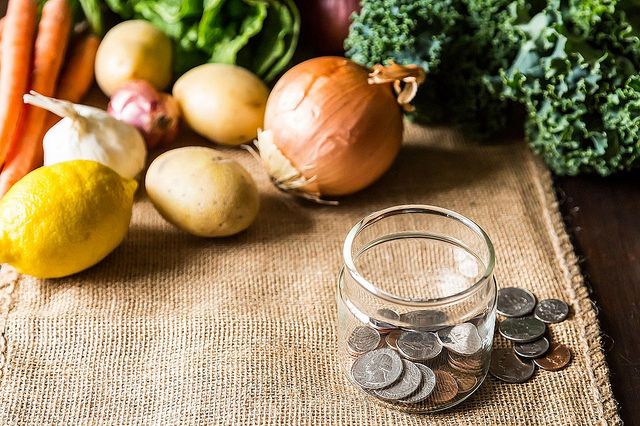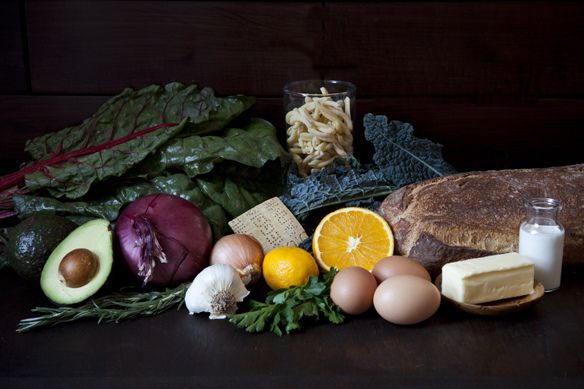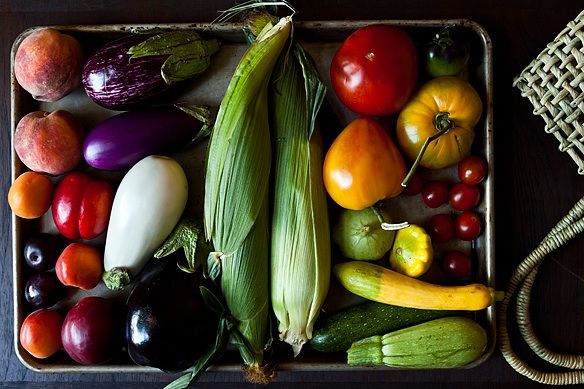
Join The Sandwich Universe co-hosts (and longtime BFFs) Molly Baz and Declan Bond as they dive deep into beloved, iconic sandwiches.
Listen NowPopular on Food52
19 Comments
sounding1972
May 8, 2015
I try to purchase maybe one small container of an extra spice or sauce each visit to the grocery store which helps when it comes to broadening my menu options. I also purchase various frozen veggies when on sale, provided they aren't the types that turn to mush after being cooked. Buying various types of rice in bulk also helps keep dishes different and exciting.
Nanda D.
March 7, 2015
As a student it's hard to convince other students that buying in bulk, with a lot of preservable stuff is really cheaper than buying new stuff every night. And at the end of the month, you know there's got to be some pots and cans of stuff in the pantry that you bought for times likes this...
lizbeth
December 6, 2013
Sorry but heres a sour note. I could not possibly buy tge items you suggest for 100. I live in oklahoma and while our food prices are not as high as in NY neither is the income. Farmers markets here charge very high prices, as much as one dollar per tomato! and as for allowing an extra 200 or so per month for extras, for annyone on a budget or fixed income, that is a joke. And not a nice one. I dont like what appears to be snobbery on your site.
walkie74
June 19, 2013
We're running low on food this month, so I'll be putting some of these suggestions to work. Thanks!
Monica @.
June 5, 2013
Brown rice that I can add lots of flavor to, tuna for simple pasta dishes and salad, lentils for my hearty Tuscan lentil soup.
Pegeen
June 5, 2013
Sam, loved your anecdote about onions in pantyhose. Just love stories like that.
mylene2k
June 5, 2013
Eggs are a must for my budget cooking. I have an egg-based dinner at least once per week. Omelettes, baked eggs, hard-boiled, frittata. there are so many options. Recently I made my first cheese soufflé - delicious and sure to impress! I even made one for a budget dinner party.
Sam1148
June 4, 2013
The onions on the counter reminds me of the way my parents used to store onions. In panty hose. Put in a onion, tie a knot, repeat until both legs are full and hang up in a closet. Cut off one of the knots to get onion for use. Onions would last months and months stored like this.
diaday
June 5, 2013
Sam...my parents did the same thing! They had a vegetable garden in the yard and when the onions grew faster than Mom could use them, it was the kids' job to tie the onions in the panty hose. We had onions hanging in the garage and they lasted a long time.
Angela @.
June 4, 2013
Did you really get all those things for $100 dollars in NYC? I'd be hard pressed to keep a list like that below $100 here in my SF suburb.
Gabriella P.
June 4, 2013
Hi Angela - The self-stable pantry items and the spices come in at under $100 and I don't need to replenish them often. I recently joined a cooperative where it's much cheaper, but before that I got by with store brand items, and shopping around at different grocery stores. (The perishables and treats I typically spend $50 per week on, though often I can get by on much less!) NYC is expensive, but thankfully much less so when you like to cook more than eating out.
Angela @.
June 4, 2013
Thanks for the info. It's true that most of those things don't need to be replenished. At this stage of cooking I would never have to buy all those things at once but if I did I think it could easly go over $100 but with care I suppose I could keep it under. I'm probably spending too much for things like olive oil, mustard, and spices. I could go with smaller sizes and less fancy brands I'm sure.
AntoniaJames
June 4, 2013
Onions on the counter? Hmmm. Cf http://food52.com/blog/3056-smart-storage-part-1 ;o)
AntoniaJames
June 4, 2013
Okay, I see now the heading there, but also I'd note that you recommend a cool, dry place. I suppose if your kitchen counter is cool that would make sense. I guess I just don't associate kitchen counters with cool. My kitchen is the warmest room in my house, and the counters tend to be one of the warmest spots in the kitchen. I've always heard that onions should be kept in a cool, dry, dark place. See, e.g., Russ Parsons' "How to Pick a Peach," at page 65. In my kitchen that would certainly not be the counter. I suppose however that every kitchen is different in this regard. Most people I know keep them on the floor of their pantries, which are the coolest (and darkest) places in their kitchens. There was a hotline thread (or perhaps it was a discussion at a Food52 potluck) in which someone with a tiny pantry-less kitchen said she kept her onions on the floor of her coat closet.;o)
Brette W.
June 4, 2013
This came just in time for my first real-life grocery-shop. Thanks, Gabriella!




See what other Food52 readers are saying.